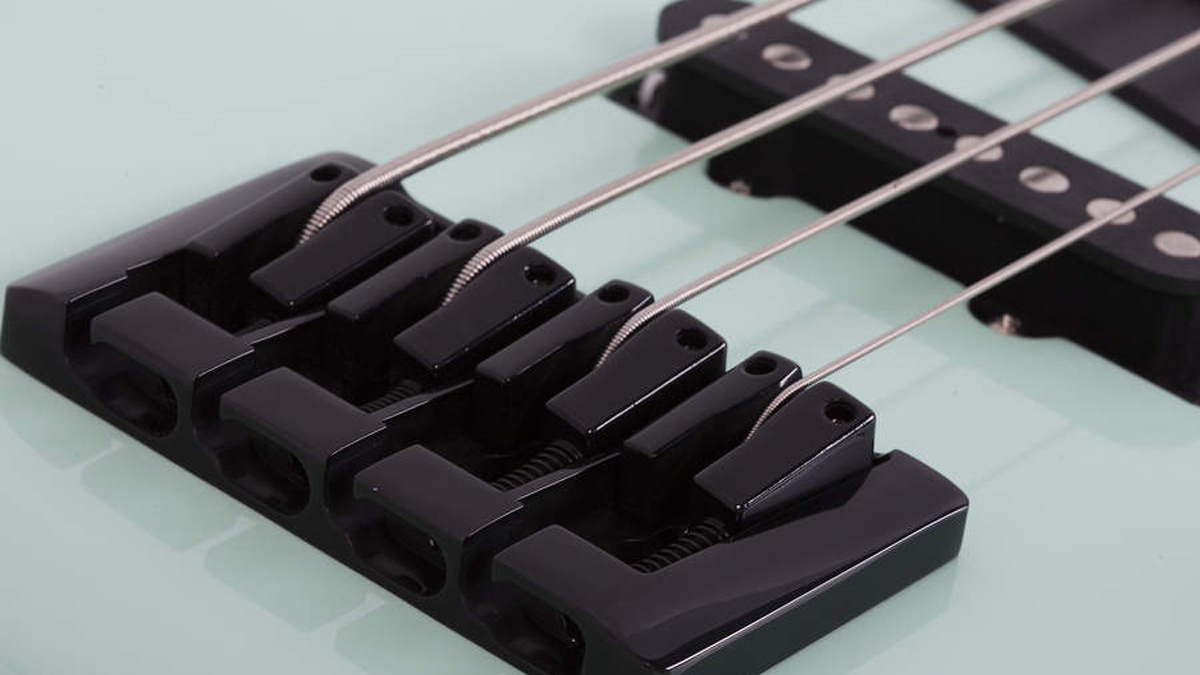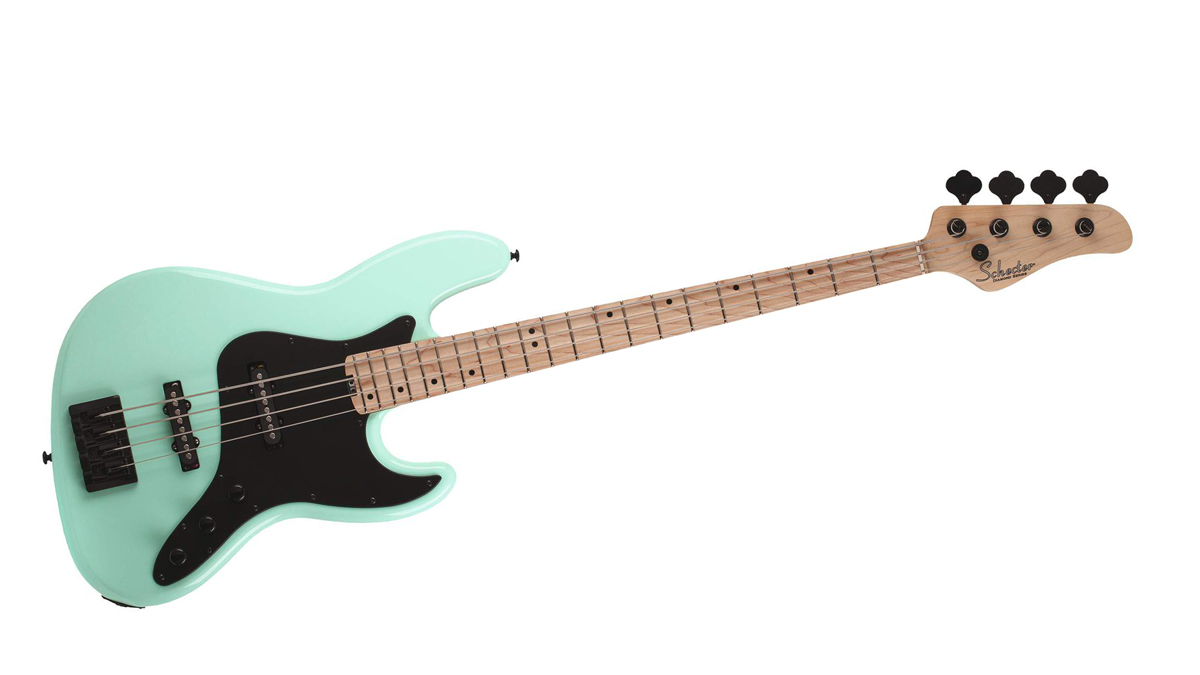MusicRadar Verdict
A very worthy J-Bass substitute.
Pros
- +
Excellent Jazz feel.
- +
Neck is a beauty.
Cons
- -
Pickups aren’t super-powerful.
MusicRadar's got your back
When it comes down to it, passive, four-string, bolt-on instruments are where the DNA of bass guitar resides; any luthier worth his or her salt should be able to deliver a professional variant on the increasingly ancient template created by the late L. Fender, and at a reasonable price too.
However, that doesn’t mean that said instrument has to look or sound boring, which brings us to this fabulous-looking Schecter J-4, tricked out in green with black hardware, for all the world like it’s 1986 again.
Build
The J-4’s price point of £829 is a friendly one. For that cost, you’ll get a decent-quality instrument that does almost all of almost everything you’ll need it to do. On examining the build of this bass, indicators are all positive, starting with the absolutely beautiful finish, the high-mass string-through bridge and the solid, own-brand tuners. The five-bolt neck joint gets our approval too. Sure, all of this is what you’d expect, even for an Indonesian-built instrument, but it’s still refreshing to cast a close eye over the details and come up smiling.
Sounds
Two identical pickups, each with its own volume pot, keep things simple, just how we like it. Solo the front unit, roll on the master tone to halfway (which is tricky with no centre detente, tut tut) and you’ll find the expected default tone, heavy on finger noise and with a pronounced low-mid bulge.
Dial up the tone if you want more thump, but roll it off completely and there’s an unexpectedly sweet, understated tone with plenty of honk for fingerstyle and perfect for slapping, particularly if you’re looking for controlled, staccato pops.
The rear pickup is a little more subdued and thin, of course, but add some tone and you’ll land on a taut sound that definitely has its uses. With both units on, with tone at max, the J-4 rewards us with a big, present sound with a little touch of clank.

After years of playing turbocharged active basses which kill cows at 100 paces, this instrument might sound a little timid - but add a preamp of your choice and turn up the volume and you’ll be perfectly able to compete at professional levels. You still won’t achieve a truly massive low end, so if that’s what you need, go elsewhere and go active.
Want all the hottest music and gear news, reviews, deals, features and more, direct to your inbox? Sign up here.
The playability is the J-4’s secret sauce, largely thanks to the dimensions and finish of the neck, a perfect Jazz replica. The familiar 1.5” nut, plus a slick finish that is neither too slippery nor too sticky, will make you feel thoroughly at home unless you’re truly addicted to baseball-bat necks.
The feel of the bass is upbeat, with plenty of bolt-on bounce, aided by the string-through bridge, and there’s easy access to the top end of the fretboard. Our only whinge is that the pickups don’t have covers, so some of the wiring is exposed, and using their skinny top edge as a thumb rest isn’t easy. Some of this is subjective, of course, but we prefer covered units for ease of playing - and also because the innards of the pickups will be afforded a bit of protection on the inevitable day that your drummer spills beer on your bass.
This a wholly decent Jazz clone, in feel if not in looks, so if you’re in the market for a new J, do give the J-4 a whirl. Of course, you could buy a perfectly good used Fender Jazz for around £800 and get the real thing, so think on.
